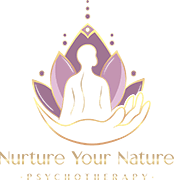Emotional intelligence (EI) — often abbreviated as EQ — is the invisible thread weaving your thoughts, feelings, and behaviors into a coherent tapestry. While IQ measures logic and recall, EQ determines how well you read a room, steady your nerves, and cultivate meaningful relationships.
IQ vs. EQ: Two Sides of the Same Coin
While your Intelligence Quotient (IQ) assesses cognitive skills and problem-solving abilities, your Emotional Quotient (EQ) focuses on how you understand and manage emotions—both your own and others’. IQ tends to remain relatively stable across your lifetime; EQ, on the other hand, is remarkably flexible and can be cultivated and strengthened at any age. That’s good news, because research shows a high EQ is linked to better communication, improved stress management, and greater success in everything from friendships to careers.
- IQ: Cognitive intelligence, logic, problem-solving
- EQ: Understanding and managing emotions, social effectiveness
The real magic happens when IQ and EQ work together. Balancing both is essential for a well-rounded life—one where you not only know the right answer, but you can also deliver it with empathy and timing that lands just right. At Nurture Your Nature Psychotherapy, a trusted hub for Brooklyn Psychotherapy and Online Therapy Brooklyn, we witness daily how sharpened emotional intelligence can transform lives, careers, and communities. Below, we explore five foundational EI skills, practical exercises to build them, and why partnering with a qualified Brooklyn Therapist gives you a decisive edge.
Clearing Up Common Misconceptions About Emotional Intelligence
You’ve probably heard emotional intelligence tossed around like it’s just another trendy buzzword, bundled up with personality types and Enneagrams. But let’s set the record straight: EQ isn’t simply your Myers-Briggs type wearing a new hat, nor is it the same as your go-to logic or academic prowess. It’s a distinct, learnable set of skills focused on how you understand, express, and manage emotions—your own and those of people around you.
Another frequent myth? That emotionally intelligent folks are always cool as cucumbers, bottling up every feeling and floating serenely above the chaos. In reality, true emotional intelligence is about tuning into your emotions—not shutting them out. It’s recognizing what you feel, responding thoughtfully (rather than reacting on autopilot), and communicating with others in a way that strengthens, not stifles, connection.
So, while EQ complements traits like charisma or logical smarts, it stands on its own as a dynamic toolkit for navigating the real, wonderfully messy human world.
1. Self-Awareness: Reading Your Own Emotional Weather
Self-awareness is the cornerstone of every other emotional skill. It’s your internal barometer, alerting you to the first rumble of anger or the subtle lift of gratitude.
Why It Matters
Without self-awareness, emotions hijack behavior. You say the unforgivable phrase, hit “send” on an impulsive email, or sabotage an interview—all before your logical mind catches up.
Self-awareness isn’t just about avoiding regrettable outbursts; it’s the foundation for sound decision-making. When you can recognize and name your emotional reactions—whether it’s a surge of anxiety before a big meeting or a spike of excitement during a new project—you’re far more likely to respond thoughtfully rather than react impulsively. This awareness lets you pause, assess the situation, and choose your next move with intention.
Being tuned into your emotional state also sharpens your ability to read the room, empathize with others, and navigate complex social dynamics. If you can notice when frustration is coloring your judgment, or sense how your mood is influencing a team discussion, you’re equipped to steer interactions toward better outcomes. In short, emotionally intelligent people make more informed, effective decisions because they understand how feelings shape both their own and others’ actions. In therapy sessions at Nurture Your Nature Psychotherapy, clients often discover that the mere act of naming a feeling (“I’m disappointed,” “I’m anxious”) lowers its intensity.
How the Four Pillars of Emotional Intelligence Build Self-Awareness
So, how do the four pillars of emotional intelligence actually nurture self-awareness?
- Self-Awareness acts as your internal compass, pointing out exactly what you’re feeling and thinking in real-time. It trains you to notice your emotional state before it takes the wheel.
- Self-Regulation steps in next, helping you pause before reacting—like taking a conscious breath before firing off that snarky reply or buying a novelty mug you don’t need.
- Social Awareness sharpens your skill at reading the emotional current in others. Ever sense tension in a Zoom meeting or catch a friend’s sarcasm before it erupts? That’s social awareness enriching your own self-understanding, showing you where your emotions fit in the broader context.
- Relationship Management rounds out the quartet by linking your emotions to your actions and communication. It’s the difference between stewing silently and saying, “I felt let down when…”—transforming gut reactions into conversations that build trust.
As you lean into all four, you begin to recognize recurring patterns—when you flare up, why you withdraw, what nourishes you. Each step strengthens your ability to identify what’s really happening beneath the surface, making emotional self-awareness less of a mystery and more of a daily habit.
Exercises to Practice
- Mood Journaling – Spend five minutes every evening noting situations, feelings, and physical cues. Over time, patterns emerge: maybe meetings spike your heart rate, or quiet mornings spark creativity.
- Body Scans – Close your eyes, breathe, and mentally “scan” from head to toe. Where is tension gathering? Chest tightness may signal sadness; jaw clenching can mean anger.
- Emotion Wheels – Use an emotion wheel chart to go beyond broad categories (happy, sad) and find nuanced labels (serene, wistful, indignant).
Therapeutic Boost
A Brooklyn Therapy professional can add structure by introducing mindfulness-based cognitive techniques, ensuring that self-observation doesn’t become self-criticism.
2. Self-Regulation: Steering, Not Suppressing, Your Emotions
Once you can recognize a feeling, the next step is managing it. Self-regulation is not emotional suppression—it’s the art of channeling energy productively.
Developing this skill means learning to control your emotional responses and adapt as situations shift. By effectively managing emotions, you can translate even the most intense feelings into positive actions and thoughtful reactions, rather than being swept away by them. Mastery here builds resilience, helping you weather challenges and setbacks with greater ease.
Key Components
- Impulse Control – Pausing before reacting.
- Stress Tolerance – Withstanding pressure without crumbling.
- Adaptability – Shifting tactics when circumstances change.
Practical Strategies
- The 90-Second Rule (cited by neuroscientist Jill Bolte Taylor): Intense emotions physically surge through the body for about 90 seconds. Breathe, count, or step outside until the wave passes.
- Cognitive Reframing – Replace catastrophic thoughts (“If I fail, I’m ruined”) with balanced ones (“If I fail, I’ll learn and adjust”).
- Progressive Muscle Relaxation – Systematically tense and release muscle groups to cue the parasympathetic nervous system.
- Mindfulness – Tune into your present experience without judgment, allowing emotions to be felt and processed rather than avoided or exaggerated.
- Stress Management Techniques – Incorporate brief meditation, a brisk walk, or even a moment of focused breathing to reset your internal equilibrium.
- Emotional Regulation – Practice noticing when emotions arise, labeling them, and choosing intentional responses over knee-jerk reactions.
How Therapy Helps
Through dialectical behavior therapy (DBT) and acceptance-commitment therapy (ACT), our clinicians teach clients to “surf” emotions rather than drown in them. Telehealth makes these skills accessible via Online Therapy Brooklyn sessions, perfect for busy professionals.
As you enhance your self-management abilities, you don’t just keep emotions in check—you harness them as fuel for growth and meaningful action.
3. Empathy: Hearing the Quiet Notes in Someone Else’s Song
Empathy is often confused with sympathy. While sympathy observes suffering from afar, empathy steps into another’s shoes, feeling the pinch and understanding the stride.
Layers of Empathy
- Cognitive Empathy – Grasping someone’s perspective.
- Emotional Empathy – Feeling what they feel.
- Compassionate Empathy – Translating understanding into helpful action.
Building Empathy in Daily Life
- Active Listening – Make eye contact, set aside the phone, and reflect back key points.
- Curiosity Questions – Replace judgments (“Why would you do that?”) with curiosity (“What led you to that choice?”).
- Story Consumption – Read novels and watch documentaries featuring diverse voices; fiction increases theory-of-mind capacity.
The Brooklyn Advantage
Living in New York City’s most culturally varied borough offers a living laboratory. Whether you’re chatting with a barista in Bushwick or a neighbor in Bay Ridge, each interaction is a chance to flex empathy muscles. A Brooklyn Psychotherapy environment gives equal attention to multicultural competence, ensuring sensitivity across race, gender, sexuality, and class.
4. Social Skills: Turning Connection into Collaboration
Strong social skills translate inner awareness into outer harmony. They allow you to inspire teams, navigate conflict, and build resilient networks.
Why Emotional Intelligence Powers Communication
Emotional intelligence and communication skills are inextricably linked. Effective communication isn’t just about words—it’s about tuning into your own emotions and accurately reading the emotional cues of others. High emotional intelligence enables you to listen actively, empathize, and adapt your style to fit both the situation and the personalities involved. This means you’re better equipped to deliver and receive feedback gracefully, manage conflicts with tact, and build strong, professional relationships that last.
Essential Subskills
- Clear Communication – Concise, honest, and context-appropriate messaging.
- Conflict Resolution – Framing disagreements around shared goals rather than personal attacks.
- Leadership & Influence – Motivating others toward positive action.
Action Plan
- Feedback Sandwich – Cushion critiques between two genuine positives to maintain respect.
- Mirroring & Matching – Subtle alignment of body language fosters rapport.
- Networking Map – List existing contacts, desired mentors, and potential collaborators; schedule coffee chats monthly.
Everyday Applications
- Active Listening – Demonstrate full presence by making eye contact, setting aside distractions, and reflecting back what you’ve heard.
- Adapting Communication Styles – Notice if your colleague prefers directness or nuance, humor or brevity, and flex accordingly.
- Constructive Feedback – Use empathy to understand how feedback might land, and tailor your delivery to encourage growth rather than defensiveness.
Therapeutic Lens
Role-playing scenarios in session allows clients to experiment with tone, posture, and boundary-setting in a safe space. Sessions with a Brooklyn Therapist can uncover hidden beliefs (“I’m awkward,” “No one listens to me”) that sabotage interactions.
By strengthening both your emotional intelligence and your social skills, you create a feedback loop: the more attuned you are to emotions—yours and others’—the more skilled, persuasive, and connected your communication becomes.
Relationship Management: Orchestrating Lasting Connections
Relationship management is where the spark of emotional intelligence becomes a social symphony. It’s more than “getting along”—it’s the conscious weaving of trust, communication, and adaptability into your everyday interactions.
Tools for Stronger Relationships
- Responsive Communication – Tuning in to the emotional undercurrents, not just the words. When you sense frustration in a teammate’s tone or excitement in a friend’s update, you adjust—not to placate, but to truly connect.
- Resolving Conflict Creatively – Channeling tensions into opportunities for shared solutions, much like Mediation Brooklyn or community circles in Fort Greene: the goal is understanding, not just keeping the peace.
- Building Collaboration – From a group project at Pratt Institute to running a startup out of DUMBO, relationship management means aligning diverse voices toward a common aim, sustaining momentum even through disagreement.
Why It Matters
Relationship management is where empathy, self-regulation, and social skill combine to elevate not only personal partnerships but also professional networks. Strength in this area lets you nurture teams, dissolve friction, and create connections that don’t fizzle after one meeting—they evolve and deepen over time.
With these skills, both your work and personal life can feel less like navigating a minefield and more like jamming with a well-rehearsed jazz band: listening, riffing, and supporting each other through every chord change.
Emotional Intelligence: The Secret Sauce Behind Leadership Styles
Great leaders aren’t just defined by their titles or their ability to command a room—they’re remembered for how they navigate emotions, both their own and everyone else’s. Emotional intelligence (EQ) is the hidden framework behind every impactful leadership style, whether you’re channeling Sheryl Sandberg’s steady hand or Satya Nadella’s human-centric approach.
How EQ Reshapes Leadership Approaches
- Self-Awareness Fuels Flexibility
Just as a talented chef tastes as they cook, self-aware leaders tune in to their own emotional flavors. By acknowledging their inner landscape—anxiety before a board meeting, pride after a team win—they recognize when to step up, step back, or invite input. A leader who can say, “I’m feeling frustrated; let’s take a pause,” sets a tone of authenticity and growth. - Self-Regulation Inspires Trust
Ever worked for someone who flies off the handle at every hiccup? Probably not your favorite memory. Leaders with high emotional intelligence keep their cool when the espresso machine breaks or a project fizzles, modeling calm problem-solving under pressure. This steadiness inspires confidence and loyalty from teams who want less drama and more direction. - Empathy Unlocks Understanding
In a bustling city like Brooklyn, diverse teams bring a kaleidoscope of perspectives. Empathetic leaders listen beyond words—catching vocal nuances and unspoken anxieties—so they can adjust their approach. For example: instead of universal policies, an empathetic manager in DUMBO might create flexible work options for parents, new grads, and artists alike. - Relationship Management Builds Strong Cultures
From Pixar’s creative brainstorming sessions to the intricate collaborations behind a Michelin-starred restaurant, emotionally intelligent leaders know people power the mission. They foster psychological safety, mediate disagreements, and champion team wins, whether through informal Slack shoutouts or structured peer recognition programs.
In Practice
Emotional intelligence doesn’t demand you morph into a different leader—it gives you a broader toolkit. The best leaders don’t simply manage people; they lift spirits, defuse tension, and create environments where others want to shine. The result? Teams that are resilient, innovative, and fiercely loyal.
5. Motivation: Lighting the Fire Within
Intrinsic motivation is the fuel powering consistent growth. While salaries, titles, or external praise can spark effort, they rarely sustain it. Emotional intelligence locates deeper drivers—values, passions, and visions.
Cultivating Sustainable Motivation
- Values Clarification – Identify core principles (integrity, creativity, service). Goals aligned with values outlast fickle trends.
- Visual Goal Mapping – Sketch short-, mid-, and long-term targets; add emotional “whys” beside each.
- Incremental Wins – Break daunting objectives into micro-tasks; celebrate completion to reinforce momentum.
Clinical Perspective
Cognitive-behavioral strategies help rewire self-defeating statements like “I’ll never finish” into empowering scripts (“One paragraph today brings me closer”). Clients in our Brooklyn Therapy practice often pair motivation work with mindfulness, learning to pursue excellence without burnout.
Integrating the Five Skills: A Holistic Blueprint
Each EI skill reinforces the others. Self-awareness without regulation leads to overwhelm; empathy without boundaries breeds fatigue. Below is a weekly framework clients can adapt:
| Day | Morning Focus | Evening Reflection |
|---|---|---|
| Monday | Body scan & journal (Self-Awareness) | Identify triggers encountered |
| Tuesday | 90-second breathing drills (Self-Regulation) | Rate stress management (1–10) |
| Wednesday | Read diverse article/novel chapter (Empathy) | Note one perspective shift |
| Thursday | Reach out to mentor (Social Skills) | Record communication win |
| Friday | Review goals & values (Motivation) | List progress + next steps |
| Weekend | Integrated practice: volunteer, attend workshop, or therapy session | Gratitude list covering all five skills |
Why Work with Nurture Your Nature Psychotherapy?
- Evidence-Based Approaches – Our therapists weave CBT, DBT, and mindfulness into tailored plans.
- Culturally Responsive Care – We honor Brooklyn’s mosaic of identities, creating space for authentic narratives.
- Flexible Formats – Choose in-person sessions in our inviting Park Slope office or secure Online Therapy Brooklyn appointments from anywhere in New York State.
- Holistic Growth – Beyond symptom relief, we target flourishing: career satisfaction, relationship depth, creative expression.
Next Steps: Start Your EQ Journey Today
If you’re ready to cultivate these five emotional intelligence skills, reach out to Nurture Your Nature Psychotherapy. Whether you prefer face-to-face counseling in Brooklyn or the convenience of virtual sessions, our seasoned clinicians are prepared to walk beside you. Together, we’ll transform self-awareness into self-mastery, empathy into connection, and motivation into lasting achievement.
Schedule a consultation and discover why so many consider us a leading choice for Brooklyn Psychotherapy, Brooklyn Therapy, and Brooklyn Therapist services. Reach out today and Schedule your Appointment Online Now or Call Us at (646) 470-4174 to get started Today!














